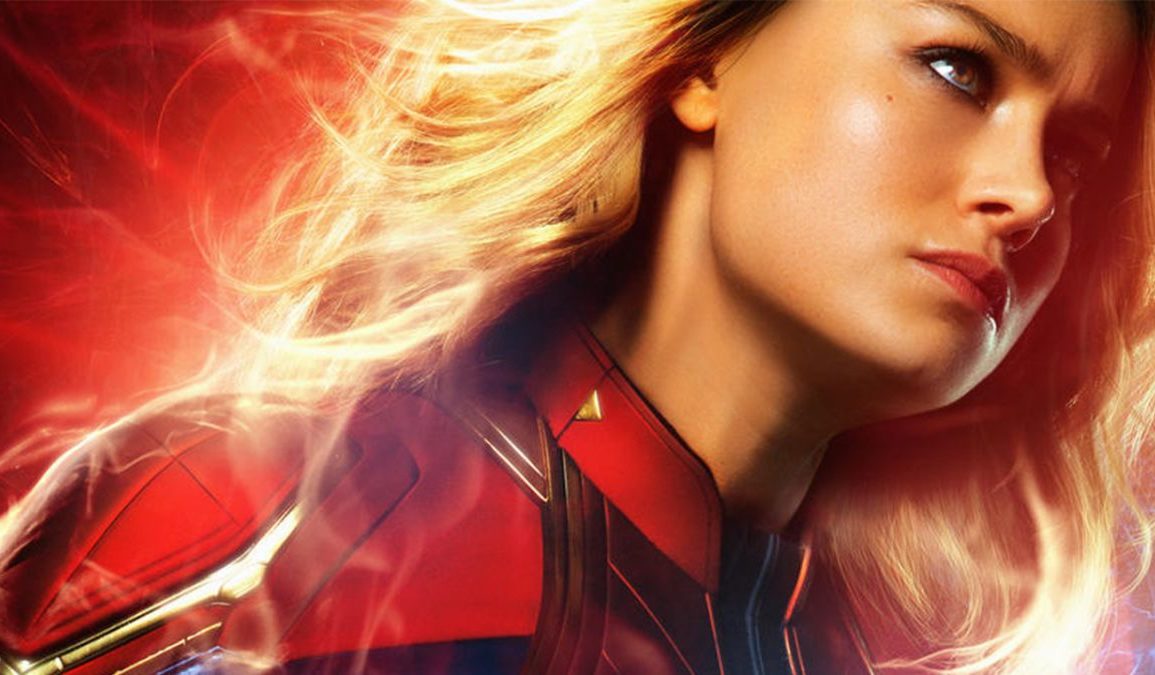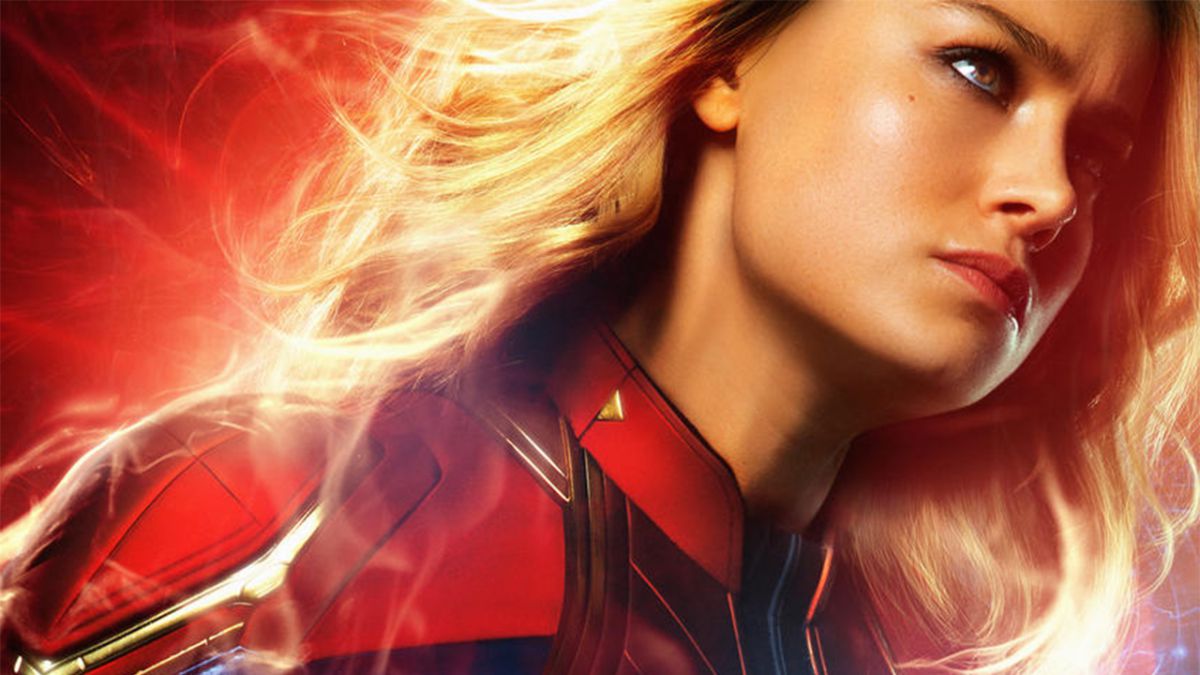Captain Marvel had a lot of impossible expectations to live up to that were put in place by the worst kinds of people. There were demands for the character to smile and emote more (after only being shown a couple minutes of footage), anger at the film’s star, Brie Larson, for having the audacity to want to engage with and hear the opinions of more women and people of color during the press tour instead of the usual white, straight males that make up the vast majority of film critics, and a coordinated bombardment of negative reviews for the film, both before and after its release, as a stand against Disney and Marvel Studios for daring to put out a superhero movie with a female lead (played by an outspoken activist). Surely, the companies must be pushing some sort of sinister agenda with all of this.
You’d be wise to steer clear of the battle that’s raging online surrounding this film, if not just to be able to form your own, unswayed opinions on it, than to help keep your sanity. Or, if you’re like me, you can take all of Captain Marvel’s discourse and channel it into viewing the film as a direct and necessary response to it, marking it as not only an important moment in movie history but in culture as well. It remains to be seen whether it will have as major of an impact as DC’s Wonder Woman (which beat it to the punch) or Marvel’s Black Panther, but Captain Marvel soars above the predetermined hate and animosity aimed at it, standing tall as both a fantastic standalone movie and a powerful and necessary addition to the Marvel Cinematic Universe.
Vers (Larson) is a soldier in the Kree army, an alien race led by an A.I. known as the Supreme Intelligence (Annette Bening). The Kree have been waging a war against another alien race known as the Skrulls, reptilian shape-shifters that are able to turn into other life forms, perfectly blending in to society (and they star in many YouTube conspiracy videos!). Ver’s team of “noble warrior heroes”, as she calls them, is sent on a mission to take down the Skrull general Talos (Ben Mendelsohn), but it quickly turns south and Vers is sent crashing down to planet C-53, otherwise known as Earth.
If that sounds like exposition overload, that’s because it is. Captain Marvel struggles a bit at the start; the first act is filled to the brim with exposition dumping and learning the names of all the different aliens and planets, but it manages to find its footing once Vers is kidnapped by the Skrulls early on. We’re shown the life she once had on Earth: she was born as Carol Danvers, a young woman who overcame the world’s sexist obstacles in front of her and who, along with her friend Maria (Lashana Lynch), became an Air Force pilot, until an unfortunate run-in with an alien force ended up cutting Carol’s career short as well as giving her superpowers. We’re shown Carol’s life and backstory via the Skrulls scrolling through her brain and watching her memories, rewinding, fast-forwarding, and even adding commentary, which ends up being a fun and unique way to unload the information onto the audience.
Captain Marvel is a lot of things at once. It’s a space fantasy adventure, a superhero origin story, a buddy cop comedy, a period piece set in the 90s, a prequel to the larger Marvel universe, and even a piece of social commentary all in one. It miraculously never falters in being all of those things, and the balancing act is a testament to the writing and directing skills of Anna Boden and Ryan Fleck, the duo that Marvel hired to helm their first woman-led film. The studio has often brought on smaller filmmakers before and put them in charge of their massive films, but Boden and Fleck could be considered as indie as they come, so it’s quite impressive that they were able to handle a project as big and important as this particular movie.
The film really gets moving once Carol is back on Earth and teams up with Sam Jackson’s Nick Fury. Jackson is having a ball, finally free from having to be the hard-ass director of S.H.I.E.L.D. that we’ve come to know. This is a much younger Fury who isn’t afraid to have fun and show that he’s enjoying himself, and the chemistry between he and Larson makes for one of the better duos in Marvel’s vast list of characters. The de-aging technology used on him is a ridiculously convincing feat of visual effects, so utterly seamless that you won’t even be thinking it after the first couple of seconds. Mendelsohn is also a scene stealer if not an entire movie stealer – his performance as Talos is one of his best and most entertaining performances in years.
What Marvel always seems to get right is its dedication to character, and for good reason. The whole idea behind the MCU’s heroes, both in casting and in writing them, is to establish someone that audiences will be happy to see on-screen for the next decade or so, and Larson’s Carol Danvers is a very welcome and long overdue presence. Carol is a hothead who’s fueled by emotions like anger and sympathy, and is constantly told by her superiors to suppress her feelings if she wishes to succeed. It hopefully shouldn’t go over anyone’s head that this story of female empowerment is about a woman who’s told that her emotions make her weak and vulnerable, when in actuality those emotions are her source of strength. There’s no need for subtlety here. Carol’s powerful feelings towards things are what makes her the god-like being she’s destined to become, and I can’t imagine what seeing that kind of story in a massive blockbuster like this must feel like to a good number of women across the globe.
Carol is a natural successor to Captain America, and she’s similar him in a good number of ways. She has a moral sense of right and wrong like he does, and always gets back up no matter how hard she’s knocked down. But what sets her apart is how much more empathetic she is than most superheroes. Her motivations are heavily influenced by her need to help the less fortunate. Not that Steve Rogers doesn’t fight for the same ideas, but the people that he’s trying to save are rarely shown to us and given time to exist as characters themselves in his films. The people that Carol chooses to protect and fight for are actual characters in her film, and it makes for one of the MCU’s most righteous and empathetic causes we’ve seen a hero take a side for.
I usually consider the Marvel films to be at their best when they reflect certain social issues and events that are taking place in the world today, such as the first Iron Man or Captain America: The Winter Soldier, and Captain Marvel joins the list by making some pretty poignant commentary. Besides the obvious themes of sexism and the suppression of women in positions of power, the film also tackles ideas on opening up one’s mind and not being afraid to reconsider everything you think you know. Vers lives her life without questioning her commanding officers and their noble conquest, and it’s not until she’s exposed to the other side and its people that she begins to understand the bigger picture. The ideas and morals you’ve always held true may not be so black and white, and that can easily lead to conversations on blind patriotism and nationalism versus exposure to new viewpoints and ideas.
Captain Marvel’s most impressive aspect to me is its unapologetic stance on certain government policies and fascism-like rule of law. There’s dialogue about refugees who are only looking for a home, and how those refugees are treated like dirt and even eradicated. There’s talk about keeping out “invaders” through whatever means necessary, and even family separation and the traumatic consequences of that. It’s bold, moving, and surprising to see issues like these being addressed in a superhero movie, but it’s all the better for it. The film throws so much into its two hour runtime that it doesn’t seem like there’s any way to properly handle them all, and yet it does, and does it well.
Despite a clunky first act, Captain Marvel shatters the opposition against it. It’s a touching, exciting, and fun adventure that introduces one of Marvel’s better lead heroes, and it easily exists on its own without needing to cater or connect to the larger universe it takes place in (although it does answer plenty of questions). The story takes some great twists and turns that keeps the energy up, and Carol’s final transformation into the extremely powerful titular Captain is one of the most earned, triumphant, and chill-inducing moments in the history of the genre. Carol Danvers is a monstrous force of good to be reckoned with, and as she herself states, she has nothing to prove to anyone.
Some of the coverage you find on Cultured Vultures contains affiliate links, which provide us with small commissions based on purchases made from visiting our site. We cover gaming news, movie reviews, wrestling and much more.





